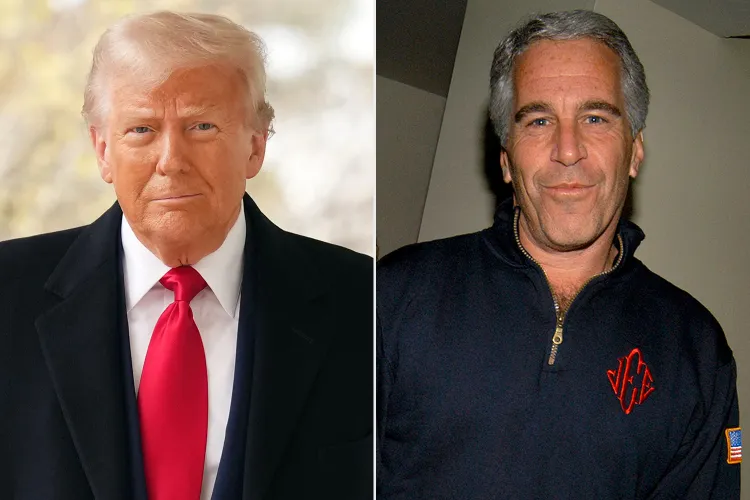NFL
Donald Trump Says He’s Signed Epstein Files Bill, Ordering DOJ to Release Documents

Donald Trump Signs Bill Releasing Jeffrey Epstein Investigation Files
President Donald Trump signed into law on November 19, 2025 a bill that compels the Department of Justice (DOJ) to release a wide array of documents tied to the late sex-offender Jeffrey Epstein.
The bill, known as the Epstein Files Transparency Act, was passed overwhelmingly in Congress the House voted 427–1 and the Senate approved it unanimously.
It directs the DOJ to make publicly accessible in a searchable and downloadable format all unclassified records, communications and investigative materials in its possession relating to Epstein—including files from the FBI and U.S. attorneys’ offices.
The law sets a 30-day deadline from signing for the DOJ to comply.
Key Features & Exceptions
While the law is broad, it includes several carve-outs and conditions:
Materials may be withheld or redacted if they would identify victims, reveal child-sexual-abuse imagery, or jeopardize ongoing investigations or prosecutions.
Importantly, the bill explicitly states that information cannot be withheld simply because of “embarrassment, reputational harm, or political sensitivity” a provision designed to prevent cover-ups for public figures.
Why This Is Significant
The Epstein case has long been the subject of public outcry over unanswered questions about the scope of Epstein’s network, his links to high-profile figures, and how thoroughly investigations were pursued. This law forces the federal government to expose major chunks of previously sealed material.
For Trump, this represents a notable policy move — especially given that he had previously resisted such disclosure efforts and labelled parts of them a “hoax”.
The move also shifts the narrative tone: the law puts the burden of transparency onto the federal government, meaning withholding or heavy redactions may spark further controversy and scrutiny.
Political Context & Trump’s Role
Trump’s announcement via his social-media platform emphasized his belief that the Epstein files were being used by Democrats to “distract” from Republican victories. He wrote: “Perhaps the truth about these Democrats, and their associations with Jeffrey Epstein, will soon be revealed, because I HAVE JUST SIGNED THE BILL TO RELEASE THE EPSTEIN FILES!”
The bill’s passage represented a break from traditional party lines: several Republicans joined Democrats to force a vote via a discharge petition, reflecting pressure from within Trump’s own base as well as from victims and advocacy groups.
Although Trump claims innocence regarding Epstein’s activities, his past social connection to Epstein means the released files may reignite scrutiny of Trump’s own history.
What Happens Next and What to Watch For
The DOJ now faces a deadline (roughly by mid-December 2025) to release the material publicly. However, the actual volume and completeness of the disclosures remain uncertain given the exceptions in the law.
Legal experts note the law lacks robust enforcement mechanisms if the DOJ delays, significantly redacts, or broadly withholds documents citing investigations or victim protection.
Observers will watch closely for:
Whether key names and records emerge that have previously been hidden.
How redactions are applied and whether they appear excessive.
Whether the released files reveal new investigative leads or prompt renewed legal action.
For the public and survivors of Epstein’s crimes, the hope is for meaningful transparency, though many caution the outcome may still fall short of full disclosure.
Potential Impact & Implications
If the files are released comprehensively, they could reshape public understanding of Epstein’s network, including connections to politicians, business leaders, and high-society figures.
Politically, the move may give Trump a narrative advantage by framing the release as part of a fight for transparency even while raising exposure to his own past associations.
On the legal front, the exposure could lead to new civil suits, congressional investigations, or criminal referrals depending on what emerges.
Conversely, if the release is heavily redacted or perceived as selective, it could fuel further distrust of the federal government’s handling of high-profile cases.
—
Bottom line: Trump’s signing of the Epstein Files Transparency Act marks a turning point in the long-running saga of Jeffrey Epstein. While the law offers the possibility of broad disclosure, whether it delivers meaningful transparency or remains largely symbolic will depend heavily on how the DOJ implements it. The coming weeks will be critical in assessing whether the public gets the full story or yet another partial unveiling.










